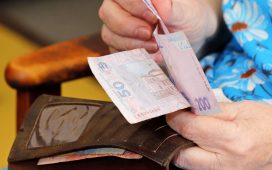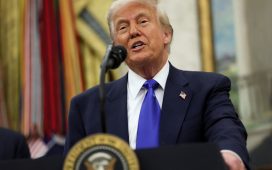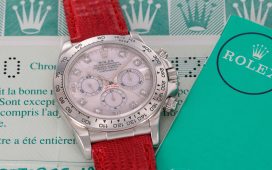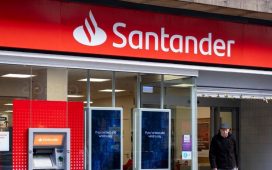Stay informed with free updates
Simply sign up to the Investments myFT Digest — delivered directly to your inbox.
Consumer goods giant Unilever is making headway with a new growth strategy under chief executive Hein Schumacher, helping the shares rise by more than a fifth year-to-date.
Schumacher, who took the reins at the Dove and Marmite owner last July, is focusing on Unilever’s 30 biggest brands. That makes sense, given they deliver three-quarters of revenue and outperform smaller brands in the portfolio. He is also trying to spin off the underperforming ice-cream business, while another part of the jigsaw is implementing a productivity plan that involves the loss of 7,500 jobs.
In results for the six months to June 30, pre-tax profit rose 6 per cent on a 2 per cent increase in revenue. Underlying operating profit surged 17 per cent, with the related margin climbing 250 basis points to 19.6 per cent. However, underlying sales growth slowed quarter-on-quarter, as price growth of 1 per cent came in below market forecasts.
RBC Capital Markets analyst James Edwardes Jones said that “Schumacher’s action plan is working, with the important proviso that competitiveness remains dismal”. Unilever’s revenue-weighted market share is flat on a rolling 12-month basis.
Activist investor Nelson Peltz has been pushing for change over the past couple of years. His stake in Unilever, built via his Trian Fund Management business, was first made public in early 2022. He joined the board as a non-executive director that summer.
Trian sold £181mn shares in three transactions from August 9-13 “for portfolio management purposes”. Given Unilever’s share price has risen by around a fifth since February 2022, Peltz has done nicely enough.
The shares trade on 18 times forward consensus earnings, in line with the five-year average. This is pricier than the higher-margin Reckitt Benckiser, a consumer goods peer that trades on 13 times and is pursuing a similar growth plan based around “power brands”, but has been hampered this year by litigation worries.
Hikma exec trims holding
An executive at Hikma Pharmaceuticals disposed of some 45,000 shares across two transactions this month amid a steady period of growth for the generic drugmaker. Bassam Kanaan, executive vice president in charge of corporate development and M&A, earned almost £889,000 from the sales.
The first took place on August 8 – the same day as the company released its half-year report – and saw Kanaan offload 35,000 shares at a price of £19.60 each. One day later, he sold an additional 10,000 shares at £20.25 apiece.
Hikma’s interim figures were healthy, with management upgrading expectations for full-year revenue growth from 4-6 per cent to 6-8 per cent. Sales in the first half were up 10 per cent to $1.57bn (£1.2bn) thanks in large part to its branded division, which has recently pivoted to the production of higher-value medicines.
Unlike its larger rivals, the company doesn’t try to produce generic copycats of big pharma’s latest blockbuster drugs. Instead, it targets more niche products with novel delivery mechanisms. Inhaled drugs are one of its specialisms as these tend to be more complicated to manufacture – meaning Hikma is less likely to face competition in the market.
Because they don’t bring new products to market via the lengthy R&D and regulatory approval process, generic drugmakers’ share prices tend to be driven by financial results rather than trial results. That might explain Kanaan’s decision to sell up in the wake of a solid set of half-year numbers. Hikma’s shares have climbed 8 per cent in the past month and nearly 15 per cent year to date.









